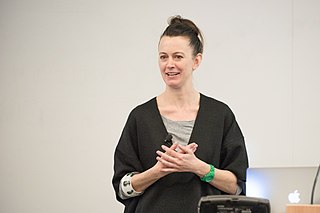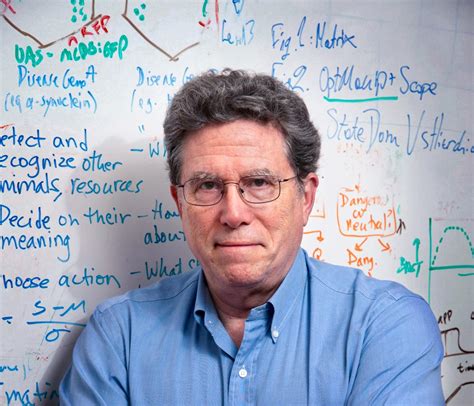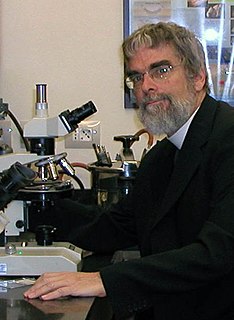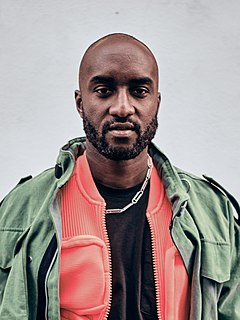A Quote by Suzanne Lee
I'm not a scientist. What I find interesting about my work is how, as a designer, I sit between science and the consumer and can see both a need and a solution.
Related Quotes
I think the way design was practiced for most of the 20th century was very declarative. A designer came up with a solution for a project and put it in place and shipped the solution and it landed in a reader or a customer's hands as a brochure. They would see it as a poster, or as a piece of signage. And that was sort of it. That was the end of it. I think Internet technology has really upended that whole equation because in some ways a designer's work is never really done online.
If complex organisms demand an explanation, so does a complex designer. And it's no solution to raise the theologian's plea that God (or the Intelligent Designer) is simply immune to the normal demands of scientific explanation. To do so would be to shoot yourself in the foot. You cannot have it both ways. Either ID belongs in the science classroom, in which case it must submit to the discipline required of a scientific hypothesis. Or it does not, in which case, get it out of the science classroom and send it back to church, where it belongs.
Any really good scientist is as much an artist as a scientist. All the interesting stuff is found on the edge between knowing and not knowing. I know that sounds like a meditation teacher speaking, but when you're in the laboratory, or you're theorizing about physics, you need to know what you know, but if you can't get out from under that, you won't be able to make that insightful, first-time connection that nobody else has seen before.
There are two things I enjoy most about my work. First, I get to work with interesting and enthusiastic people who are also fired up about science. Second, every once in a while I have moments in which I suddenly understand the solution to a problem that I've been working on - those are great moments.
I just would like to say that over more than a quarter-century as a scientist and a believer, I find absolutely nothing in conflict between agreeing with Richard [Dawkins] in practically all of his conclusions about the natural world, and also saying that I am still able to accept and embrace the possibility that there are answers that science isn't able to provide about the natural world - the questions about why instead of the questions about how. I'm interested in the whys.
I don't think any administration, when they come in, thinks that their job is to tell the scientists what the science looks like or to be quiet about the science. Scientists need to remain true and not allow science to be politicized. Scientists are not politicians, and no politician should consider themselves to be a scientist.
Science is the search for the truth--it is not a game in which one tries to beat his opponent, to do harm to others. We need to have the spirit of science in international affairs, to make the conduct of international affairs the effort to find the right solution, the just solution of international problems, and not an effort by each nation to get the better of other nations, to do harm to them when it is possible. I believe in morality, in justice, in humanitarianism.
Most Christians who've been around for a while have their Story in bits and pieces, but have never seen how powerful it really is when assembled as a whole. I want them to see how well it fits together and how it offers tremendous explanatory power regarding the world as we actually find it. I want them to see how it resolves the problem of evil, and why God's solution - the God/man Jesus - is the only solution.







































